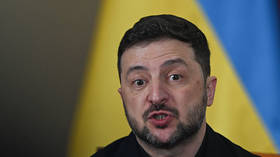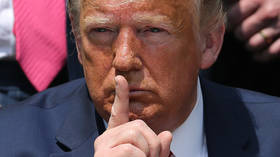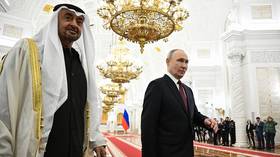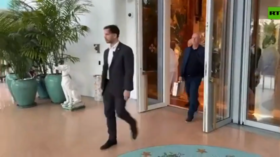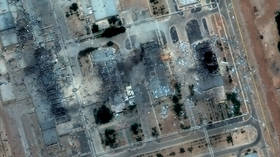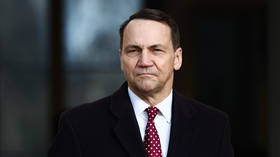Khodorkovsky, partner's appeal rejected, but sentence shortened by 2 months
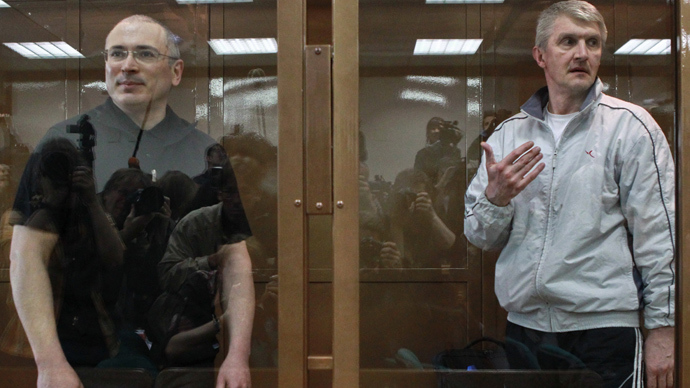
Russia's Supreme Court has reduced the sentence to the former oil tycoon Mikhail Khodorkovsky and his partner Platon Lebedev against their second conviction for money laundering and embezzlement.
The court has ruled the men would be released respectively in
August and May 2014 - in both cases two months earlier than
scheduled.
Khodorkovsky's defense team insisted in their appeal that
Russia's former richest man and Lebedev, a key lieutenant, had
been convicted on charges that were false and invalid.
During a second trial in 2010, shortly before their scheduled
release, the two were found guilty of large-scale theft and money
laundering, and sentenced to 14 years each. Upon review, the
sentences were later cut to 11 years each. The court ruled that
the terms be served concurrently with the existing jail terms -
meaning the sentences of the two businessmen are set to expire in
2014.
Khodorkovsky and Lebedev were arrested in 2003 and later found
guilty in 2005 on charges of tax evasion and fraud. Their
nine-year sentences were later cut to eight.
Khodorkovsky, 50, is being held in a prison colony in northwest Russia, in Karelia, while Lebedev, 56, is in the far north Arkhangelsk Region.
During Khodorkovsky’s and Lebedev’s second trial, President Vladimir Putin said that “a thief should be in jail” in answer to a question about the Yukos cases. After Putin’s comments, opposition activists voiced concerns that new charges could be brought against Khodorkovsky and Lebedev.
In December 2012, the presidium of Moscow City Court reduced their jail terms to 11 years, so Lebedev was due to be set free in August 2014, and Khodorkovsky in October 2014.
On July 25 the European Court of Human Rights (ECHR) rejected Khodorkovsky’s complaint that his
jailing for tax evasion in 2005 was “politically-motivated
from start to finish,” saying the charges against him had a
“healthy core.”
“The court was prepared to admit that some government
officials had their own reasons to push for the applicants’
prosecution. However, it was insufficient to conclude that the
applicants would not have been convicted otherwise,” the ECHR
judgment stated.
On Tuesday, one of Khodorkovsky's and Lebedev's lawyers, Vadim Kluvgant, said the men would appeal to the Presidium of the Supreme Court.
The UN Human Rights Council has praised the shortening of the
men’s sentences, even though it considers a reduction of two
months insufficient.
“This is a slight adjustment. The fact that it has been
reduced is great, but it’s too little... We expected a more
humane verdict," Mara Polyakova, director of the Independent
Council of Legal Expertise, told the RIA Novosti news agency.
Kirill Kabanov, a member of the Presidential Council for Human
Rights and an anti-corruption activist, said he saw viewed the
reduction of sentences as a “signal of change regarding
business, and specifically in regard to those persons.”


